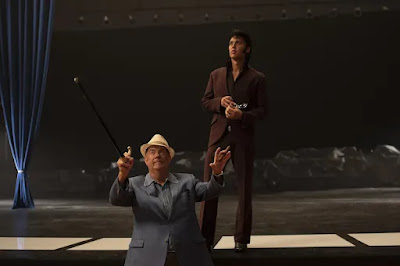As I have sort of alluded to in previous years, New Year’s Resolutions don’t interest me much, not anymore. That’s not to say I don’t have goals, I do, but in a more specific, less self-pressured way than vague commitments to Bettering Myself. My chief goal in 2022 was to finally read Larry McMurtry’s 1985 Western novel “Lonesome Dove,” all 864 pages, about a cattle drive from a small border town in Texas all the way to Montana and the Bighorn Mountains. And what I loved most about the book is how the cattle drive, while epic in the essence of its undertaking, is arbitrary, almost pointless, put into motion by Captain Woodrow F. Call (his name an ironic counterpoint) for nothing, really, than lack of a better idea. His partner in cattle driving and fellow ex-Texas Ranger Augustus “Gus” McCrae (a name communicating honor and informality in equal measure) is content where he is, sitting on the porch more than working, watching the sunset and drinking whiskey, philosophizing, in a manner of speaking, a real European sensibility in the American Southwest, mad respect. True, he uses the cattle drive as an opportunity to seek out Clara, his beloved who got away, but he winds up back where he was at novel’s end, if not quite in the way he might have hoped, and hey, Call does too. What did it all mean? Who the hell knows?
Running parallel to this cattle drive is Roscoe Brown, deputy to Sheriff July Johnson of Fort Smith, Arkansas and an imprecise, kinda crooked echo of Gus. Where Gus sits on a porch, Roscoe sits on a couch (in the Fort Smith jail with one cell that doesn’t have a lock); where Gus drinks whiskey, Roscoe whittles; where Gus philosophizes, in a manner of speaking, Roscoe is happy not to think too much at all. (Barry Corbin apparently played Roscoe in the television miniseries, but I kept picturing younger Harry Dean Stanton with a pitiful pencil moustache.) Roscoe is, however, happy where he is, which McMurtry’s line about the “sparkling” Arkansas River just down the street from the jail conveys on the day that changes his life. This happens because July has ridden off to find an escaped killer, and because July’s wife Elmira has ridden off to find her one true love, causing Roscoe to be reluctantly enlisted by the towns folk to ride off to advise July about his spouse. If he’s considered slow, Roscoe seems to know from the jump that this will not end well, though McMurtry does treat this as fatalism but an antithesis of the hero’s journey, things getting blurrier rather than clearer, only getting further and further from the place he wants to be, sleeping on the ground rather than lying on the jail couch (I kept thinking of Jennifer Lawrence once saying that when she’s out somewhere, she’s mostly just thinking of her couch), from a place with trees to a place with no trees to speak of, all climaxing not in an awakening, or reckoning, or understanding, but a kind of anti-epiphany that feels, to me, like the quintessential year-end tribute.
“Every time Roscoe tried to think back along the line of events that had led to his being in a place where there was no trees to lean against, he strayed off the line and soon got all tangled up in his thinking. It was probably better not to try and think back down the line of life.”



















